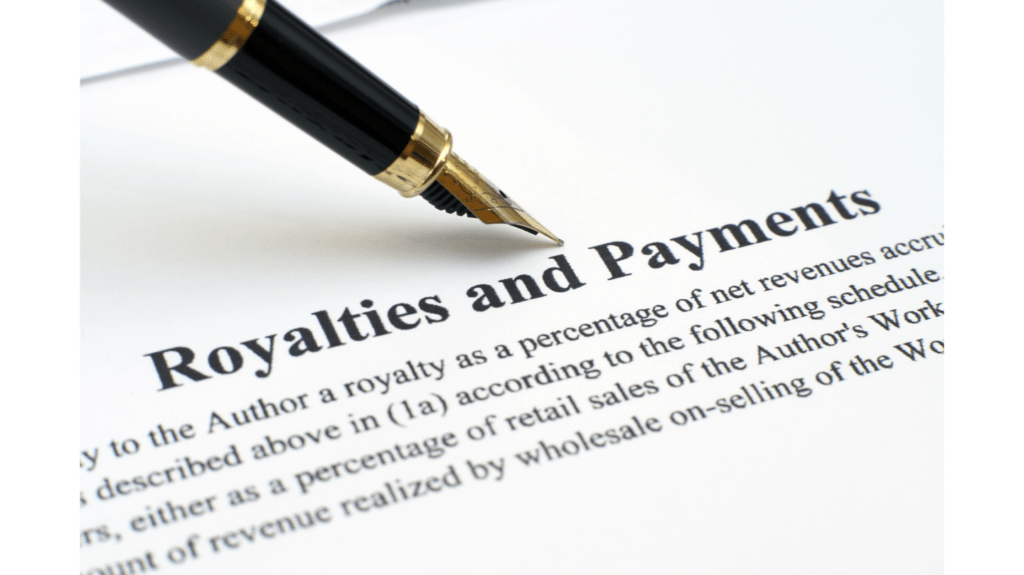Intellectual property (IP) is an invaluable asset in today’s digital and creative economies and IP licensing royalties is a common way for creators of intellectual property to monetize their proprietary assets. Whether you’re an entrepreneur, a tech startup, or a digital creator, understanding how to leverage IP through licensing agreements is crucial. An IP licensing agreement allows one party (the licensor) to grant rights to use their IP to another party (the licensee) in exchange for compensation, commonly in the form of royalties. But how do you structure these royalties to ensure fairness and profitability? This blog explores the nuances of royalties in IP licensing agreements, offering insights into legal considerations and strategic advice for navigating these complex deals.
What is IP Licensing Royalties?
Intellectual property refers to creations of the mind, such as inventions; literary and artistic works; designs; and symbols, names, and images used in commerce. IP is protected by law through patents, copyrights, trademarks, and trade secrets, enabling people to earn recognition or financial benefit from what they create or invent.
Understanding IP Licensing Royalties and Agreements
An agreement involving IP Licensing Royalties is a legally binding contract wherein the licensor permits the licensee to use, produce, and sell the IP in accordance with specific terms and conditions. These agreements can be tailored to suit various business needs, including adjusting the scope of rights, exclusivity terms, and the geographical areas in which the IP can be exploited.
 The Role of Royalties in IP Licensing
The Role of Royalties in IP Licensing
Royalties are the financial backbone of many IP licensing royalties agreements. They are typically variable payments made by the licensee to the licensor based on the revenue generated by the licensed IP. This compensation structure aligns the interests of the licensor and licensee, ensuring both parties benefit proportionally from the success of the product or service utilizing the IP.
Main Legal Considerations in Structuring Royalties
1. Exclusivity
Deciding between an exclusive or non-exclusive license impacts royalty rates. Exclusive licenses often command higher royalty rates due to the monopoly granted to the licensee over the use of the IP in a defined market or region.
2. Scope of the License
The terms of the license, including the duration, geographical limits, and specific uses of the IP, play a crucial role in determining the royalty structure. A broader scope typically justifies a higher royalty rate as the licensee can exploit the IP in more ways, potentially generating more revenue.
3. Calculation of Royalties
The method of calculating royalties must be clear and agreed upon in the licensing agreement. Common bases include:
- Percentage of Sales: Royalties are a fixed percentage of the revenue generated from sales involving the licensed IP.
- Per Unit: A fixed amount is paid for each unit sold that uses the IP.
- Profit Sharing: Royalties are based on a share of the profits, often after deducting certain expenses.
Decisions must also be made about whether royalties are calculated before or after deducting expenses, which can significantly affect the net amounts received by the licensor.
Strategic Considerations for Entrepreneurs and Startups
When entering into an IP licensing royalties agreement, it’s vital to consult with an experienced attorney who can help navigate the complexities and tailor the agreement to your specific needs. David Nima, Esq., a principal attorney at L.A. Tech and Media Law Firm, has extensive expertise in entertainment law, IP protection, and deal-making involving IP assets. His guidance can help ensure that your IP assets are optimally leveraged and protected.
Maximizing IP Licensing Royalties Through Strategic Contracts
IP licensing is a powerful tool for monetizing intellectual assets. By understanding and carefully negotiating the terms of royalties, creators and businesses can ensure that they are adequately compensated for the use of their IP while also fostering a profitable and sustainable business relationship with their licensees.
For entrepreneurs and technology startups, navigating the intricacies of IP licensing agreements is pivotal. Consulting with seasoned legal experts like David Nima, Esq. can provide the necessary insight and foresight to craft agreements that not only protect your intellectual property but also enhance its value in the marketplace.
If you are considering licensing your IP or need advice on structuring royalties, do not hesitate to contact the L.A. Tech and Media Law Firm for a confidential consultation and expert guidance tailored to your unique situation.
Ready to harness the power of your IP? Let’s ensure your intellectual assets work for you in the most effective way possible.


 The Role of Royalties in IP Licensing
The Role of Royalties in IP Licensing